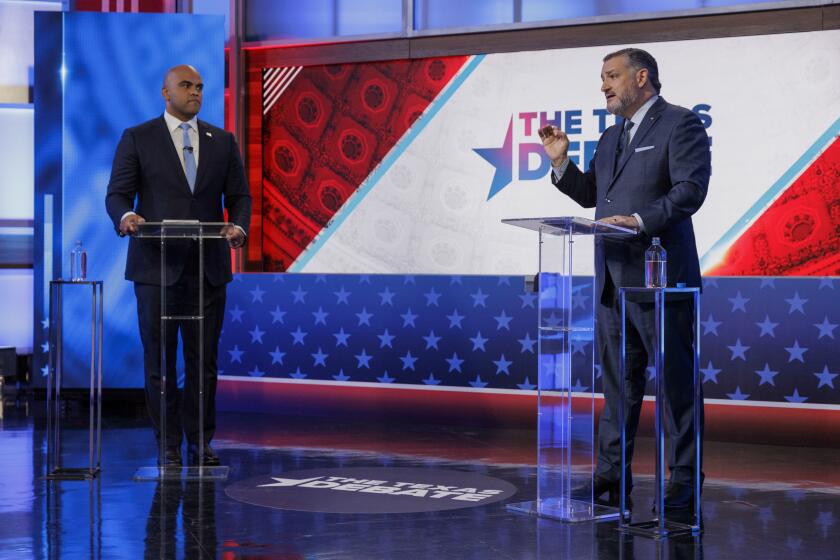Noriega Trial Delay Will Aid Defense, Experts Say
Gen. Manuel A. Noriega, whose racketeering and drug smuggling trial is in the midst of a six-week recess, is likely to be the chief beneficiary of the unexpected delay, legal authorities say.
Originally scheduled to resume this week in Miami after a 20-day Christmas holiday break, the trial has been delayed three more weeks because U.S. District Judge William M. Hoeveler underwent emergency open-heart surgery just before Christmas.
Attorneys familiar with criminal trials said the 41-day hiatus is unprecedented and clearly will help Noriega’s lawyers at the expense of the prosecution, which concluded its case Dec. 17. Now, Noriega’s defense will not begin until Jan. 27.
Legal experts said jurors may have difficulty keeping the government’s case in mind after such a long break.
“Some jurors have a hard time remembering testimony from a day or two earlier, much less six weeks ago,” Washington attorney D. Warren Donohue said. “This certainly complicates the government’s job” of convicting Noriega.
Plato Cacheris, another white-collar defense attorney and a former federal prosecutor, said the delay seemed so extraordinary it could be grounds for a mistrial.
“During this period the jurors will have to return to their everyday lives and be exposed to publicity and other outside influences,” Cacheris said.
A government lawyer close to the case said he doubts that either side will ask for a mistrial, noting that defense attorneys originally sought a longer Christmas recess to give them more time to prepare their case.
Hoeveler rejected their request, saying at one point: “I’ve got a jury to worry about.” Less than a week later, he was told that he needed emergency surgery.
The government source conceded that the delay is a setback for the prosecution but said prosecutors believe that any disadvantage could be overcome by “skillful cross-examination of defense witnesses and a persuasive summation of evidence.”
Richard Wilson, a law professor at American University, said the delay will be “tremendously helpful to Noriega’s attorneys because it gives them time to analyze the major thrust of the prosecution’s case and to plan their defense more carefully.”
Although details of Noriega’s defense strategy remain unclear, his lawyers are expected to counter charges that he received payoffs from Colombia’s Medellin drug cartel by contending that he sought to help the Drug Enforcement Administration, not contribute to illicit drug smuggling.
They also have suggested that Noriega’s accusers falsely implicated him to enhance and protect their own criminal activities.
More to Read
Sign up for Essential California
The most important California stories and recommendations in your inbox every morning.
You may occasionally receive promotional content from the Los Angeles Times.










